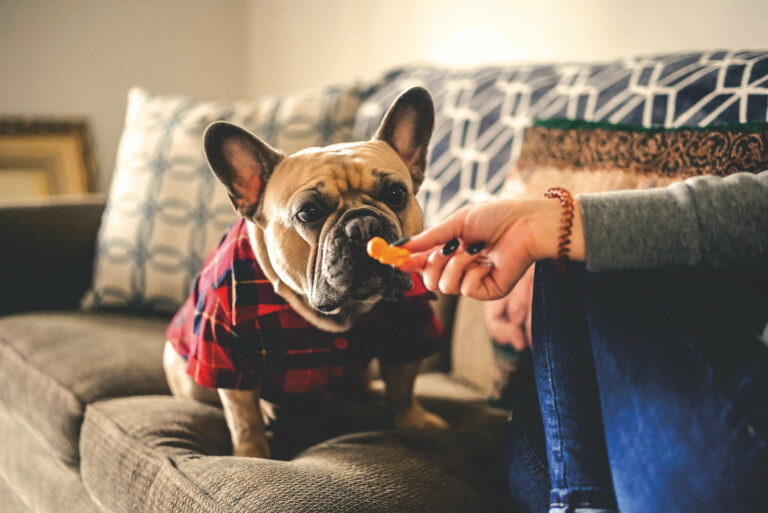Want to give your pup a treat because they are being such a good dog? Or (totally hypothetical situation) did they get out of the house and you need to get them back, but you’re out of dog treats, and your dog is a stubborn baby, and the only way to convince them to come back is whatever you can quickly find in your house? Yes, I may have reinforced my dog’s bad behavior on occasion with human food, but that’s not the point. If you are looking to give your doggo some human food, what should you give them? Or, more importantly, what should you not give them? Well, we’ve compiled a list for you!
Foods that you can give your dog in reasonable portions:
- Vegetables and Pumpkin: Vegetables provide plenty of vitamins and fiber for your pup. They are also a great low-calorie snack for your pet (and you). Especially if your dog is on a diet, veggies can be a great snack!
- Peanut butter: Peanut butter is a great source of protein and fat for your dog, just like us! Just make sure you check for Xylitol on the label, as that is toxic to dogs.
- Cooked and De-boned Meat and Fish: Not only do most dogs generally like meat and fish, and it can also be an awesome some of the various amino acids dogs need.
- Fruits: Though there are several types of fruit that are toxic to dogs (see below); berries, bananas, melons, tropical fruit, pears, and apples are all great treats for dogs! Remember, fruits have high sugar content, so keep fruits as a sometimes food for your pup.
- Loose Corn: Corn is a common ingredient in dog food, and is perfectly alright for dogs. Just don’t give them the cob; it’s a choking hazard.
- Bread and Other Grains: Bread and other grains are fine for dogs. They provide no nutritional value for your pet though, so keep this also a sometimes food.
- Eggs: Eggs are a great treat for your pup! They are packed with vitamins, minerals, and protein that your dog needs.
Foods that you should definitely NOT give your dog:
- Xylitol: Xylitol is highly toxic to dogs. It is common in processed foods, particularly low-sugar/sugar-free foods. Check anything you give your dog for Xylitol.
- Chocolate: Everyone knows that chocolate is bad for dogs, but it’s a good reminder to put here. Chocolate is toxic, even some white chocolate. There are doggie-chocolate substitutes you can buy, but make sure they are safe before you give them to your dog.
- Caffeine: High amounts of caffeine can cause your dog to shake aggressively and cause severe heart issues.
- Macadamia Nut: Another highly toxic food for dogs is macadamia nuts. It will make your dog extremely sick, and may even cause death.
- Onions and Garlic: These common spices can cause anemia, and in large doses, poisoning.
- Grapes, Raisins, and Currants: These fruits can cause kidney failure and gastrointestinal issues.
- Almonds: These hard nuts easily be choked on or tear your dog’s throat if not chewed properly. Dogs are not good at chewing small things thoroughly, so avoid giving your pup almonds.
- Seeds and Pits: These can make your dog very sick and are also a choking hazard. Don’t feed your dog any seed or pit that you wouldn’t be safe eating yourself.
- Quite salty/spiced/spicy foods: Have you ever eaten something so spicy that you have felt physically ill afterward? Well, that spice threshold is a lot lower for dogs. Even things that merely have a lot of spices can make your dog sick. And spices, particularly salt, can cause severe dehydration.
- Alcohol: All the negative side effects on your brain and liver that you experience with alcohol will also affect your dog. However, it takes much less alcohol to produce those effects in dogs.
- Avocados: This popular food contains a chemical called persin that causes diarrhea, vomiting, and heart congestion in your dog.
- Fat Trimmings and Bones: These are choking hazards, and fat trimmings can cause pancreatitis.
Do you occasionally treat your dog to people foods? What are your dog’s favorite people foods? Leave your stories in the comments below!
Though these lists provide great guidelines, we are not certified veterinarians. If you are concerned about something your dog has eaten or you have given your dog, please consult your veterinarian.
